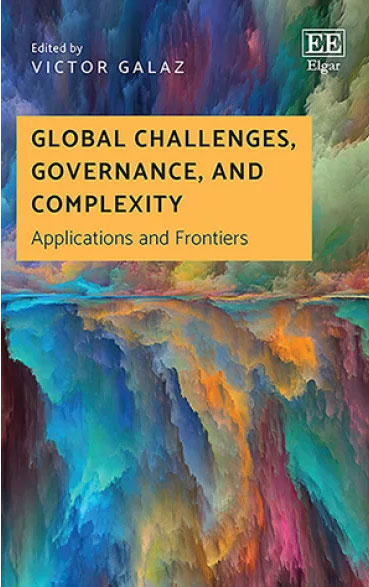Bildtext får vara max två rader text. Hela texten ska högerjusteras om den bara ska innehålla fotobyline! Photo: B. Christensen/Azote
COMPLEXICTY AND SUSTAINABILITY
New book on governance, institutions and policy in face of complexity

Photo: J. Lokrantz/Azote
Text
Offers insights into successful governance in a rapidly changing world
While it is clear what problems the world are dealing with, the solutions required to solve them has to embrace the features of complex systems; to grasp the interwovenness of society, the biosphere and technology.
In a new book edited by centre deputy director Victor Galaz experts from a wide range of disciplines including political sciences, law and economics, share their insights on the role of leadership, institutions, networks, risks and economics play when dealing with complex challenges such as global environmental change.
An unusual ability to bring together scholars
The book, published by Elgar Publishing (UK/US), illustrates a number of theoretical and methodological approaches to help understand the role of decision-making, policies, institutions and networks in navigating complexity.
It is deemed particularly interesting to political science and sustainability scholars interested in how increased connectivity and complex system properties such as “tipping points” and networked risks pose new challenges to societal governance from local to global levels.
Victor Galaz believes complexity approaches have an unusual ability to not only bring together scholars from a wide set of academic disciplines – ranging from political science to economics and Earth system science – but also attract scholars interested in producing science and actionable knowledge to help society tackle difficult and urgent global challenges.
I hope this volume shows the interesting advancements that have been made the last decade in bringing together multiple streams from the social sciences, with complex systems thinking.
Victor Galaz
Contributions include chapters by centre science director Carl Folke; Simon Levin (Princeton University), members of SRC's International Science Advisory Council and Anne-Sophie Crépin, deputy director of the Beijer Institute of Ecological Economics.
Other contributors include SRC collaborators all over the world whose expertise covers research issues such as systemic risks, law, cognitive sciences, philosophy, political economy, and leadership studies.







